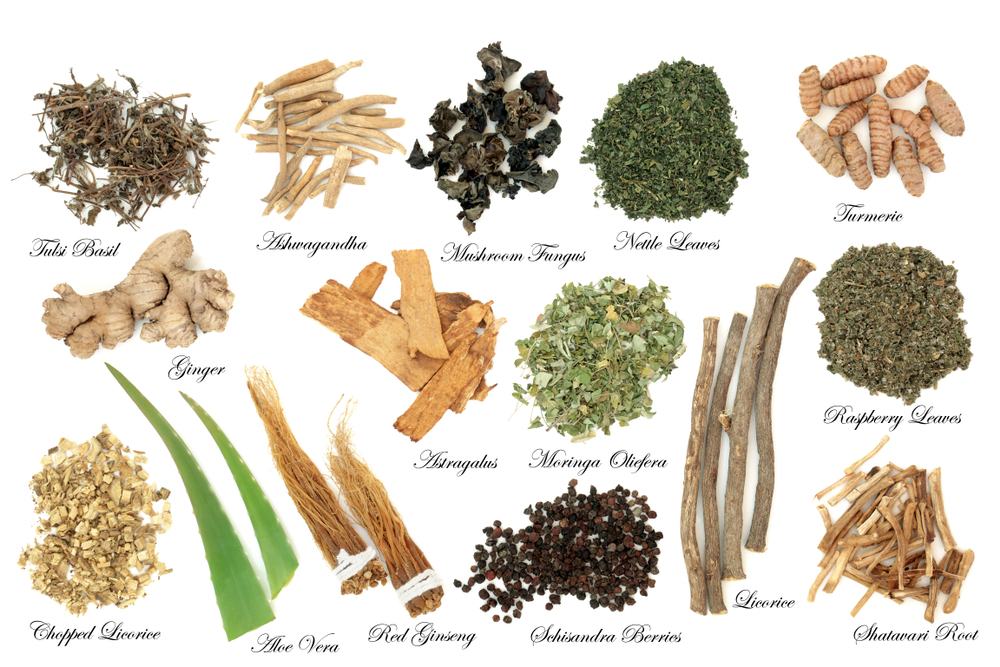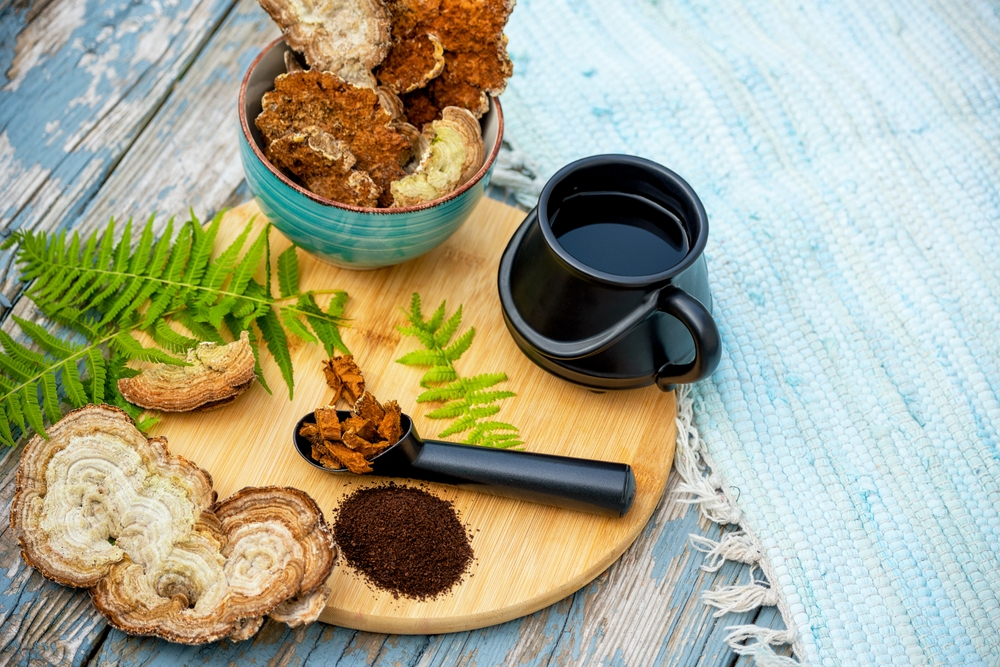Adaptogenic Herbs: Amazing Nature’s Stress Fighters Explained

Table of Contents
In a modern world filled with stress and anxiety, the search for natural remedies has led many to the remarkable realm of adaptogenic herbs. These potent plants have been treasure troves of relief, bridging the delicate gap between nature and the human body with their stress-fighting properties. Imagine the sensation of feeling rejuvenated and balanced, all thanks to the bountiful offerings of adaptogenic herbs. Let’s explore the essence of these botanical wonders and unlock the secrets to harnessing their unique stress-fighting powers.
The Origins of Adaptogenic Herbs

Diving into the past, we uncover the roots of mighty plants known for their resilience-aiding powers. From ancient healing traditions to storied texts of herbal wisdom, these botanicals have been partners in human well-being for centuries. They have woven their way through various cultures, celebrated for their natural ability to help our bodies resist the tumultuous tides of stress.
Historical Context of Adaptogenic Herbs
Long before modern medicine, ancient healers turned to nature for relief from stress and fatigue. One powerful group of plants they discovered are what we now call adaptogens. These natural heroes have deep roots, tracing back thousands of years across various cultures.
In places like China, India, and Russia, traditional medicine practitioners revered these herbs for their incredible abilities to restore balance to the body. Imagine how these old-world healers, with their vast knowledge of plants, carefully selected the most effective herbs to combat stress – the same herbs that are still used today to help us stay calm and strong in the face of our busy lives.
Cultural Significance
For centuries, different cultures across the globe have been turning to the Earth’s green bounty for healing. Adaptogens aren’t just a modern wellness trend; they’re steeped in tradition and have played a pivotal role in various healing practices. In areas like Siberia, China, and India, these herbs have been the backbone of herbal medicine, with local lore and ancient texts often referencing their profound impact on health and spirit.
In these societies, the herbs are more than just remedies; they’re seen as agents of balance and harmony within the body. Holy Basil, also revered as Tulsi in India, is a prime example. It’s not only used to soothe stress but also held sacred with deep spiritual significance. Adaptogens have long been the bridge connecting people to nature, offering a natural synchronicity that supports both physical and mental resilience.
Understanding Adaptogens for Stress Management

When life throws stress your way, nature has its own special agents ready to help you bounce back: the mighty adaptogens. Think of these herbs as your personal support team, working to balance your body’s stress response and boost your resilience. Let’s dive into the heart of what these botanical helpers are, how they work in tune with our bodies, and the ways they ease the stress of our everyday hustle.
Defining Adaptogenic Herbs
Ever heard of nature’s personal bodyguards against stress? They’re called adaptogens, and they’re a special bunch of plants with unique talents. Adaptogens help our bodies fight off stress and find balance. Think of them like expert gymnasts—they’re super good at helping us stay steady, no matter what life throws at us.
Not just any herb can call itself an adaptogen. To join this elite group, a plant must meet three important criteria. They must be safe (your body gives them a thumbs-up for everyday use), non-specific (ready to battle various stressors, whether it’s a tough workout or a tricky exam), and they must have a normalizing effect (like a thermostat, they keep your body’s stress response just right). These special herbs work silently in the background, tuning your body to its best.
Adaptogens and the Human Body
The magic of nature is truly remarkable when you consider how plants have a way of syncing with our bodies. Adaptogens are like wise botanical friends that know just how to help us cope with stress. When you take them, they work by tuning into your body’s specific needs and then doing their thing to help you maintain balance.
Think of adaptogens as your body’s personal trainers, coaching your cells to handle stress better. They support your adrenal glands, which are key players in managing stress hormones. By boosting your body’s resilience, adaptogens help to keep your energy levels steady and your mind clear, even when life gets hectic.
Stress-Relief Mechanisms of Adaptogens
Nature has a clever way of offering us relief, and adaptogens are no different. These special herbs help by balancing the body’s stress-response system. Imagine your body is like a scale, with stress on one side and relaxation on the other. Adaptogens are the weights that can tip the scale back to a peaceful equilibrium.
But how do they actually work? Well, they interact with the body’s hypothalamic-pituitary-adrenal (HPA) axis, which is a fancy term for the system that controls our stress hormones. When life throws curveballs, your body talks to your brain, releasing stress hormones like cortisol. With adaptogens, this conversation becomes more like a chill chat rather than a panicked shout, keeping your stress levels in check.
Exploring Key Adaptogenic Herbs

Dive into the lush world of nature’s warriors, each endowed with unique abilities to combat stress and bring harmony to our lives. From the verdant fields of India to the icy tundras of Siberia, these botanical saviors beckon with their promise of resilience and tranquility. Let’s set on a journey to uncover the secrets held within four key herbs that have stood the test of time as our allies against the hustle and bustle of daily pressures.
Ashwagandha: The Indian Ginseng
Ashwagandha, often hailed as the Indian Ginseng, is a powerful plant that has made its mark in the realm of herbal supplements. This herb traces its roots back to ancient practices, where it was revered for its ability to enhance vitality and provide energy. It’s not just an energy booster though; ashwagandha is known for its remarkable adaptogenic qualities that help the body combat stress.
Its scientific name, Withania somnifera, hints at its somniferous properties—meaning it can induce calm and support better sleep. But the benefits don’t stop there. Ashwagandha is also believed to support the immune system, improve concentration, and even help maintain a healthy weight by regulating stress-related cravings. So when life gets hectic, this herb could be your go-to for staying grounded and focused.
Rhodiola Rosea: The Arctic Root
Imagine a plant so resilient that it thrives in the cold, harsh environments of the Arctic. Rhodiola Rosea, often referred to as the Arctic Root, is just such a plant. It’s not only survived, but flourished, in high altitude and freezing climates, making its way into the spotlight as one of nature’s most impressive stress combatants.
This golden-hued root has been a staple in traditional medicine for centuries, revered for its ability to boost energy, enhance endurance, and, most importantly, help the body adapt to emotional and physical stressors. It’s likened to a thermostat for your body, turning up or down your stress response as needed. By balancing the cortisol levels in our bodies, Rhodiola Rosea supports better mood and focus, proving to be a precious ally in our quest for calm and clarity amidst life’s storms.
Ginseng: The King of Herbs
Imagine a plant so revered it was once worth more than its weight in gold. That’s ginseng for you – often hailed as The King of Herbs. This root holds a special place in the world of natural remedies due to its extensive health benefits, particularly when it comes to managing stress.
Ginseng is not just one but several kinds of root, with the two most popular being Asian Ginseng (Panax ginseng) and American Ginseng (Panax quinquefolius). They’re known for their energizing effects and their ability to help the body cope with mental and physical stress. But the benefits of ginseng go beyond stress relief. It has also been linked to improved cognitive function and increased energy levels. No wonder it’s been a cornerstone in traditional medicine for thousands of years!
Holy Basil: The Elixir of Life
Holy Basil, often referred to by its Sanskrit name, Tulsi, stands out in the world of rejuvenating botanicals. It’s not just another plant with aromatic leaves; it’s a cornerstone of holistic wellness that has been revered in Indian culture for hundreds of years. Imagine a herb that not only calms your nerves but can also revitalize your entire system, offering you an oasis of tranquility in the hustle of daily life.
This green jewel of the garden is more than just a culinary ingredient; it’s believed to purify the mind, body, and spirit. Whether you’re sipping it as a soothing tea or taking it as a supplement, Holy Basil embodies the true essence of healing by maintaining a perfect equilibrium within your body’s stress response system. It’s like having a personal guard, ensuring that stress doesn’t overrun your mental fortress, keeping you focused and full of vitality.
Incorporating Adaptogens into Daily Life

Bringing these natural stress busters into your day-to-day routine can be surprisingly simple and utterly rewarding. Whether it’s stirring a spoonful of powdered holy basil into your morning smoothie or popping a ginseng capsule before a busy workday, adaptogens offer a versatile line-up of options to fit everyone’s lifestyle. Let’s explore the creative ways to make these herbal heroes a part of your wellness ritual, ensuring you get your daily dose of calm and balance.
Culinary and Beverage Applications
In the dance of daily life, meals and drinks are not just about filling up — they can be moments of rejuvenation, especially when infused with the right ingredients. Adaptogens are making their way into kitchens everywhere, starring in recipes that do more than just tickle your taste buds. Picture this: a steaming cup of tea that not only warms your hands but also brings a sense of calm to your entire being. That’s the magic adaptogens can brew.
Whether it’s a sprinkle of ashwagandha powder in your morning smoothie or a dash of holy basil in your pasta sauce, bringing these power-packed plants into your meals does more than offer a unique flavor. It’s about sipping, savoring, and nourishing your body in the most natural way. Chefs and bartenders alike are getting creative, conjuring up dishes and drinks that not only please the palate but also balance our inner stress scales. So why not give your next meal a stress-busting boost? Your body might just thank you with a happier, more balanced state of mind.
Supplement Forms and Dosage Guidelines
When you’re ready to weave the magic of these stress-battling plants into your daily grind, you’ll find they come in all shapes and sizes. Pills, powders, teas – you name it, there’s an adaptogen version of it. The convenience of capsules might call out to you, perfect for on-the-go ease. Or maybe you’re more of a tea lover, sipping on the earthy flavors of holy basil or ginseng.
But let’s talk about how much to take. It’s like Goldilocks and her porridge – you’ve got to get it just right. Alas, there’s no one-size-fits-all dosage here. Follow the manufacturer’s recommendations or chat with a healthcare expert. They’ll help you figure out your perfect amount – not too much, not too little, but just the spot-on pinch to keep your stress in check. Remember, the key to unlocking the benefits of these wonders is to be patient and consistent.
Combining Multiple Adaptogens for Synergistic Effects
Imagine a team where every member works together perfectly—this is what happens when we combine adaptogenic plants. They join forces to offer even more powerful stress-fighting support. This idea of synergy means that when certain herbs are taken together, their combined effect is greater than the sum of their individual effects.
For instance, Ashwagandha and Holy Basil make a dynamic duo. Ashwagandha is great for lowering stress and boosting brain function, while Holy Basil helps with anxiety and blood sugar control. When taken together, they support each other in nourishing the body and mind, providing a calm yet energized state. Always remember to check with a healthcare provider before starting any new herbal regimen, to ensure these combinations are right for you.
The Future of Adaptogenic Herbs

As we venture forward, the promise held by these natural wonders is nothing short of spectacular. With each scientific discovery and growing global awareness, the role of these powerful plants in our quest for balance and vitality becomes more engrained in our daily lives. These herbs are not just a fleeting trend but a blossom of nature that could potentially redefine the way we combat stress and enhance our holistic health.
Emerging Research and Development
Scientists are always on the lookout for ways to improve our health, and the world of adaptogens is no exception. Recent studies are digging deeper into how these plants can help us fight stress. They’re not just looking at the stress we feel from a bad day at work or school but also at how stress can affect our health over time.
What’s cool is that this research isn’t just happening in one place. Scientists all around the globe are joining the quest to understand adaptogens better. They’re exploring new plants, diving into the bioactive compounds that give adaptogens their power, and figuring out how they can work best for us. We might see adaptogens popping up in more health products, foods, and even in medical treatments. That’s pretty exciting because it means these natural wonders could become a bigger part of our lives, helping us stay balanced and healthy.
Global Awareness and Acceptance
As we delve deeper into the benefits of nature’s stress busters, it’s inspiring to see a growing global consciousness about these powerful plants. People from all corners of the globe are not just recognizing, but actively embracing these herbs for their ability to foster resilience against the hustle and bustle of daily life. This newfound popularity isn’t a trend; rather, it’s a return to age-old wisdom that suggests a harmonious blend of nature and well-being.
What’s more, scientific communities are increasingly intrigued by the potential of these plants. Researchers and wellness experts are coming together to dive into the science and spread the word on how our bodies can truly synergize with the natural world. These efforts are fostering a universal respect for adaptogenic herbs, paving the way for a future where stress relief goes hand in hand with the leaves and roots that the earth provides us. This is the sort of global wave that could change the way we all think about managing stress, making these herbs household names in the arena of natural health.
Conclusion
Step into a world where the delicate whispers of nature mingle with the needs of humanity, and you’ll find adaptogenic herbs standing tall, ready to embrace their role as nature’s stress fighters. With a lineage woven through history and a promising future driven by modern science, these botanical wonders continue to offer a pathway to balance and vitality. Let’s embrace the gifts of adaptogenic herbs and allow their stress-fighting prowess to illuminate our journey to holistic well-being.
FAQs
Is adaptogen safe?
Adaptogens are generally considered safe for most people when used appropriately. However, it’s crucial to consult with a healthcare professional before incorporating adaptogens into your routine, especially if you have pre-existing health conditions, are pregnant, or are taking medications. Dosage and individual responses can vary, so personalized advice is essential.
Are adaptogen drinks safe?
Adaptogen drinks, when consumed in moderation, are generally safe for most individuals. However, it’s essential to check the ingredients and ensure they don’t contain substances that may be harmful to you. It’s always advisable to consult with a healthcare professional to determine the suitability of adaptogen drinks for your specific health circumstances.
Who should avoid adaptogens?
While adaptogens are safe for many people, individuals with certain health conditions or those taking specific medications may need to avoid them. People with autoimmune diseases, for instance, should be cautious, as adaptogens may stimulate the immune system. Pregnant or breastfeeding women, and individuals with allergies to specific adaptogens, should also exercise caution and seek professional advice.
What are the negatives of adaptogens?
While adaptogens are generally well-tolerated, some potential negatives may include interactions with medications, allergic reactions, or mild side effects like gastrointestinal issues. It’s important to use adaptogens under the guidance of a healthcare professional to minimize risks and ensure they complement your overall health plan.
What is the dark side of ashwagandha?
Ashwagandha, like any herb or supplement, may have side effects or interactions with certain medications. Excessive consumption of ashwagandha may lead to digestive issues, nausea, or even thyroid complications in sensitive individuals. To avoid the potential dark side, it’s essential to use ashwagandha in moderation and under professional guidance.
Why do I feel weird after taking ashwagandha?
Feeling “weird” after taking ashwagandha could be due to an individual’s unique response or sensitivity to the herb. It might also be a sign of an adverse reaction or improper dosage. If you experience unusual symptoms, it’s advisable to consult with a healthcare professional to determine the cause and adjust your usage accordingly.
Do adaptogens make you sleepy?
Adaptogens, such as ashwagandha and holy basil, are often associated with calming effects and stress reduction, which may contribute to better sleep. However, individual responses vary, and some people might not experience a sedative effect. It’s advisable to monitor your body’s response and consult with a healthcare professional if you have concerns about adaptogens affecting your sleep patterns.
Useful resources
- PubMed: You can find scientific articles and studies on adaptogens on PubMed, a database of biomedical literature. Visit: PubMed
- Mayo Clinic: Mayo Clinic is a reputable medical resource that often provides information on various health topics. Check their website for insights on adaptogens. Visit: Mayo Clinic
- National Center for Complementary and Integrative Health (NCCIH): The NCCIH provides evidence-based information on various complementary health approaches, including adaptogens. Visit: NCCIH
- Healthline: Healthline is a health information website that often covers a wide range of topics, including adaptogens. Visit: Healthline








This is my first time pay a quick visit at here and i am really happy to read everthing at one place
Your point of view caught my eye and was very interesting. Thanks. I have a question for you.
This post is so interesting. I can’t wait to read more from you.